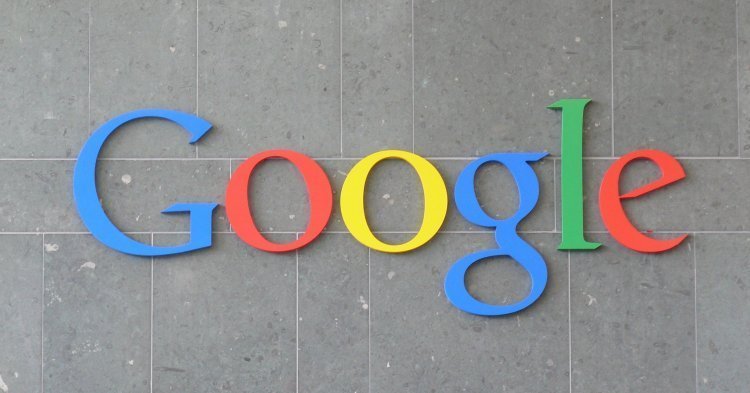“Dominant companies like Google have a special responsibility not to undermine competition. And we had to fine Google because it didn’t live up to that responsibility” (Margrethe Vestager, 7 November 2017, Lisbon Web Summit). On 27 June 2017, the sword of Damocles struck Google. The punishment this web giant has to suffer takes the form of a fine totaling 2.42 billion euros and is based on its behaviour that constitutes an abuse of dominant position.
Since the 1990s [1], the European Competition Authorities have been struggling with web giants. From Microsoft to Google, and from the former Commissioner for Competition, Mario Monti, to Margrethe Vestager, the total of the fines has been steadily rising and today it amounts to billions of euros.
In November 2010, the European Commission started a negotiations procedure with Google in order to stop the impairment to free competition created by its behaviour on the European market. Tired by the failure of the commitment procedure that was launched, the Commission sent Google a notice of complaint in May 2015. In June 2017, the current Commissioner for Competition said that “what Google has done is illegal under EU antitrust rules. It denied other companies the chance to compete on the merits and to innovate. And most importantly, it denied European consumers a genuine choice of services and the full benefits of innovation”.
The prominent role of the European Commission in matter of competition
In 2014, Google imported its price comparison service to Europe: this service is a detailed offer of all the prices charged by internet retailers of all sorts. All 31 Member States of the European Economic Area (EEA) are affected by Google’s long-term settlement. If we consider this fact, the European market is affected and the European law is applicable. In economic law, the market is a place where supply and demand meet. In Google’s case, this offer is the service that facilitates research on the Internet and prices comparison. The demand, on the other hand, is promoted by the users of goods and services. The European Commission has jurisdiction over watching over the protection of competition on the European market.
The search engine illicitly promoted the price comparator “Google Shopping”
The abuse of dominant position is prohibited by article 102 of the Treaty on the Functioning of the European Union (TFEU). A dominant position is defined by the number of held market shares that place a company in a position of economic power that allows said company to hinder the maintaining of an effective competition. We need to point out that the dominant position of a company within a market of goods or services is not punishable in itself. However, the abuse of such a position is liable to reprimand. The abuse of dominant position is an “objective notion” that consists in inpeding free competition. [2]
Google holds de facto nearly a monopoly on the market of search engines on the Internet. The press release of the European Commission on the imposed sanction states that Google is predominant (it holds 90% of market shares) on the market of search engines.
What link is there between Google’s service, search engines and “FROOGLE”, or the service of price comparison (renamed “GOOGLE SHOPPING”)? At first, this service seemed to be a failure. However, being aware of its dominant position, Google has strongly promoted its service of price comparison by retrograding concurrent services. The visibility of “GOOGLE SHOPPING” greatly improved afterward. In accordance with article 102 of TFEU, the European Commission established that Google was limiting the activity of its competitors by creating a disadvantage in competition by promoting “illicitly” the service “GOOGLE SHOPPING”. If the number of offers rises, the competition can be healthy. However, when the competitors suffocate under the weight of a titan, the characteristic advantages of a healthy competition completely disappear. It is only rational thinking that pushed the European Commission to choose a solution that embodies the increasing will to enforce the rules meant to protect the market and the competition.
Google’s defenders [3] will probably say that ensuring a better visibility to your service is not an abuse of algorithm, but rather a normal behaviour in any competition. However, they do not answer the following question: what about legal positivism? What good is there in writing dispositions in matters of competition if there is no punishment for not respecting these dispositions? Dominating a market is not the question; however, silencing and hindering the development of your competitors is a sign of competitive dishonesty and should therefore be punished.
An exemplary punishment
A fine of 2.42 billion euros was imposed on Google. In line with the regulation n°1/2003 of the Council and the Commission notice of June 2006, the determination of the fine in matter of antitrust is calculated on the basis of the achieved turnover, capped at 10% of this turnover. The fine imposed by the Commission stands for 6% of Google’s turnover and serves, as such, as an example. [4] In 2008, this fine was increased by a late payment fee of 899 million euros, which was later brought down to 860 million euros by the General Court of the European Union (EGC). The fine, good for 1.357 million euros, was a record then. Another fine of 152.875 million euros was imposed upon the provider Téléfonica on the basis of an abuse of dominant position on the Spanish market of broadband Internet.
Last but not least, a fine of 1.06 billion euros was imposed upon Intel by the General Court of the European Union (EGC), but was later rendered void by the Court of Justice of the European Union (CJEU) on 6 September 2017. After acknowledging this on 11 September 2017, Google has asked for a right to redress the decision of the Commission. But this right to redress has no suspensory effect, and the legal treatment is slow (the case might last between one and two years), which means that Google will still have to pay its fine and might only benefit from the influence of the Intel case decision with delay. Nonetheless, the judgement passed on 6 September should be put in perspective: the setting aside of the decision actually sanctions the mistake of law, weighed in concreto, committed by the Commission and the EGC. The discounts that Intel granted to its clients were qualified as “exclusive discounts” and the “loyalty-inducing” nature of these discounts was not taken into account in the global context of the case. Such a possibility is hardly viable in the case of Google, which clearly facilitated the promotion of the service Google Shopping by abusing its dominant position. A disallowance of the right to redress seems thus unavoidable.
Web giants “GAFA” (Google, Apple, Facebook, Amazon) under constant pressure
The position that the Commission stated on 27 June 2017 is but the first taste of the turmoil that the American company of Mountain View will have to face. Two other cases are currently being looked into by the DG Competition of the European Commission. Firstly, following a negotiations procedure on 20 April 2016, the European Commission sent a statement of objections for abuse of dominant position to Google and imposed restrictions to producers of Android hardware and to mobile network providers. This informative statement is not a definitive judgement for the case, and it allows all the parties to exercise their right to defence.
Secondly, Google found itself again under the spotlight with the case “Google Adsense”. The Commission sent a preliminary notice on this matter in July 2016. The notice stated that Google abused from its dominant position by artificially limiting the possibility for third-party websites to display contextual advertisement from Google’s competitors.
Finally, it should be mentioned that Google is not the only giant that should be worried. Subjects of quarrel between the EU and the web giants “GAFA” (Google, Apple, Facebook, Amazon) are still multiplying. The suspicions of infringement do not stop at abuses of dominant position. The EU is still more interested in the stakes of personal data treatment and especially in the protection of this data, and this in order to protect the “privacy” of the European internet users. A story to be continued...





Follow the comments: |
|
